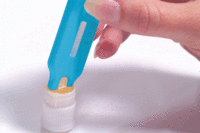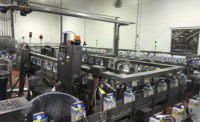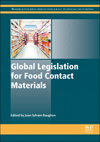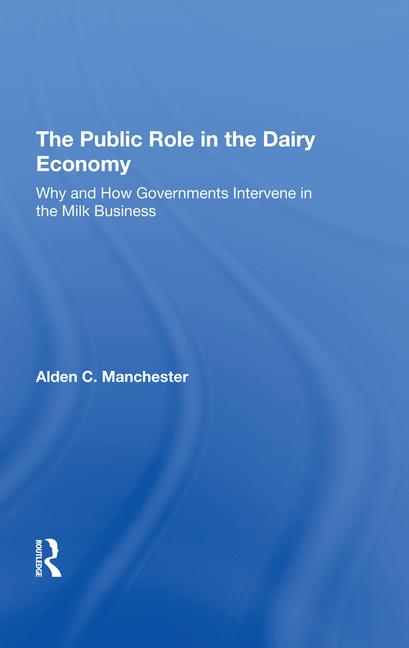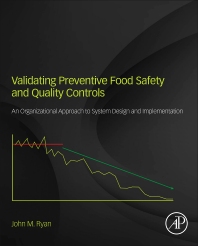Dropping allergen soft claims for accredited certification
Both food allergen labeling, and cross-contact prevention are at the forefront for obvious reasons.

Eighty-five million Americans avoid purchasing food with the top nine allergens as they have food allergies or care for someone who is allergic. That’s approximately one out of four people. According to research by FARE (Food Allergy Research and Education) and Northwestern University, over 32 million of these have a food allergy to one of the major nine allergens (Peanut, Tree Nut, Fish, Shellfish, Milk, Egg, Wheat, Soy, Sesame).
In May of 2023, the draft of the compliance policy guide for food allergen labeling and prevention of cross-contact released by the U.S. Federal and Drug Administration (FDA) was published. It is apparent that improving allergen food safety in the U.S. is a strong focus. Both food allergen labeling, and cross-contact prevention are at the forefront for obvious reasons. This FDA draft guidance, when finalized, will be implemented alongside its enforcement policy regarding allergens.
Time is of the essence to improve allergen food safety for consumers. It comes down to saving the lives of food-allergic people worldwide, as the number of sufferers is rising each year. The consequences of an allergic reaction can be severe, including anaphylactic shock or even death.
Consumers must be able to rely upon and trust allergen claims, not second guess or wonder whether a product that says “may contain” or makes soft claims like “dairy-free” are safe to consume.
If there are two containers of non-dairy creamer at the store, and one claims to be dairy-free and the other one is certified milk-free backed by an accredited third party, which one would you choose? Considering various allergen sensitivity levels in humans, this feels like a no brainer. There is not only a growing need for transparency and label clarity, but validation for the free from claims being made by companies. There are lives on the line.
With the huge influx of allergy-friendly foods hitting the shelves daily, it’s on these food manufacturers to have their products stand out with even more allergen clarity. This is where an accredited, third-party verification can come in and increase their value over their competitors.
A third-party “free from” certification shows consumers that this brand or establishment has their personal safety and best interests in mind. It ensures that this item or service is certified free from allergens as opposed to a soft claim which in many cases is not verified or validated. The credibility here speaks volumes to the consumer, who is 61% more likely to purchase a product that is certified, according to independent studies.
There are certification programs on the market that help substantiate allergen-free claims with more integrity through third-party verification and validation at kitchens and manufacturing facilities.
Programs like these address two critical points of emphasis for food manufacturers and food service providers. For one, they are applying increased focus and accountability on allergen management programs at the manufacturing plants and kitchens. They are also verifying and validating current allergen soft claims, eliminating them, and replacing them with a mark of certification for any to all nine of the major allergens in the U.S.
According to the FDA, in 2022, 43.5% of recalls were allergen related. Within the last few years, a global snack manufacturer was given a warning letter from the FDA after numerous recalls, and still, allergen related recalls continue to happen at these facilities.
Manufacturers are held accountable to a certain extent by the FDA for allergen food safety; companies regularly go through standard third-party food safety audits. In a standard GFSI (Global Food Safety Initiative) food safety audit, all components of a food safety program are reviewed - from pest control to manufacturing to shipping out of the back dock.
The allergen management program is a small section of the GFSI audit and needs a much more in-depth solution that focuses exclusively on it. A separate, more intensive audit to certify facilities and their products as free from allergens is the solution, not just simply applying a soft claim and not being held accountable to prove this through comprehensive standards.
What do the innovative allergen food safety certification programs mean for brands and consumers moving forward? Brands can sleep well at night, knowing they have ensured allergen food safety at the highest level, which correlates to reducing and even eliminating food safety incidents.
This is when consumers will experience absolute transparency, feel more confident about purchases, and trust that the product is what it says it is. As a result, more of your products will move off the shelf and your customers will feel safer.
Editor's note: The views expressed in this article are those of the author only and do not necessarily reflect the views of Dairy Foods or its parent company, BNP Media.
Sources:
https://www.foodallergy.org/media-room/fare-expands-partnership-northwestern-university-announces-data-commons
Looking for a reprint of this article?
From high-res PDFs to custom plaques, order your copy today!





